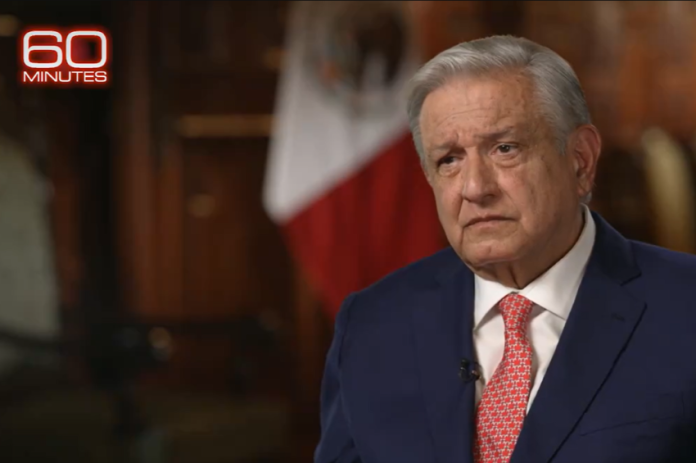The border wall. The migration crisis. His doxing of a foreign journalist. The fight against organized crime. The production of fentanyl. United States politicians’ use of Mexico as a scapegoat.
They are among the issues President Andrés Manuel López Obrador discusses in an interview with 60 Minutes, the long-running CBS program that dubs itself the United States’ “most watched newsmagazine show.”
Broadcast on Sunday, the interview was conducted by journalist Sharyn Alfonsi, who met with the president commonly known as AMLO in the National Palace, Mexico’s seat of executive power. Here is an overview of the key points.
The border wall, Donald Trump and the Mexico-U.S. relationship
López Obrador dismissed Trump’s declarations that he will proceed with the construction of a wall on the Mexico-United States border as mere campaign rhetoric, asserting that if he wins the election he won’t follow through because of the close economic ties between the two countries.
“We signed an economic, a commercial agreement that has been favorable for both peoples, for both nations. He knows it. And President Biden, the same,” he said, referring to the USMCA trade pact, which superseded NAFTA in 2020.
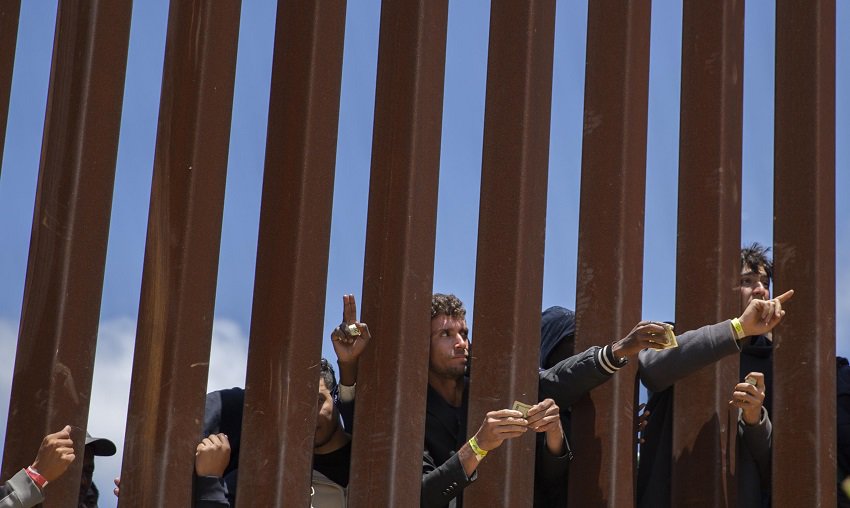
López Obrador also asserted that the border wall “doesn’t work,” and recalled a telephone conversation he had with Trump during which he spoke about the former president’s pet infrastructure project, despite an agreement to not discuss it.
“I told him, ‘I am going to send you, Mr. President, some videos of tunnels from Tijuana up to San Diego, that passed right under U.S. Customs.’ He stayed quiet, and then he started laughing and told me ‘I can’t win with you,’ said AMLO, whose remarks were broadcast in English.
In a “60 Minutes” addendum to the main interview package, López Obrador said that Trump was “respectful” of Mexico’s sovereignty, and that current U.S. President Joe Biden is as well.
The United States and Mexico have “had differences,” but the two nations “have been able to put first the general interests of both peoples,” he said.
“And we have understood each other. And for that reason, we are economic, commercial partners,” López Obrador said, noting that Mexico is now the United States’ top trade partner.
“And we would like to continue that way, because we need each other,” he said.
How Mexico helped curb migration into the United States in early 2023
Asked what Mexico did “between December and January” to precipitate a 50% reduction in border crossings by migrants, López Obrador responded:
“We were more careful about our southern border. We spoke with the presidents of Central America, with the president of Venezuela and with the president of Cuba. We asked them for help in curbing the flow of migrants.”
He said that the strategy adopted by Mexico “is a short-term solution” and reiterated that the federal government wants “the root causes” of migration “to be attended to.”
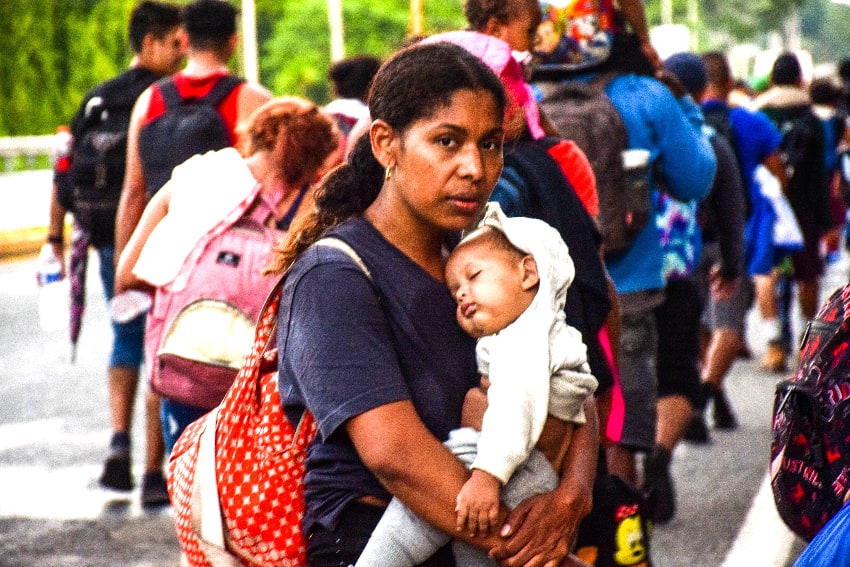
AMLO said that Mexico will continue to implement actions to curb northward migration, but stressed that “the flow of migrants will continue” unless the root causes — things such as crime and lack of opportunity — are addressed.
López Obrador — who has urged the United States Congress to approve a US $20 billion “plan of cooperation for development and well-being” in Western Hemisphere countries — added that Mexico will cooperate on migration even if the U.S. doesn’t increase its funding for regional projects as the bilateral relationship “is very important.”
The president’s disclosure of a New York Times’ journalist’s phone number
López Obrador defended his decision to disclose the telephone number of the Times’ bureau chief for Mexico Natalie Kitroeff after she and another journalist wrote a report containing allegations that the president and people close to him, including his sons, received drug money after he took office in late 2018.
“It looks like you were threatening that reporter,” Alfonsi said to AMLO.
“I didn’t do it with the intention of harming her. She, like yourself, are public figures, and I am as well,” López Obrador responded.
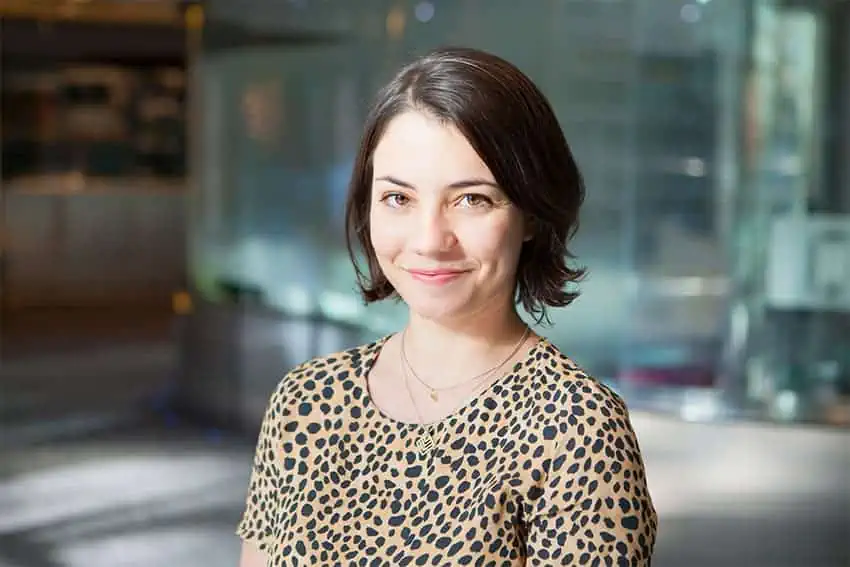
After Alfonsi noted that Mexico is a dangerous country for journalists and that “threats often come in text and phones,” AMLO said that all he was doing was responding to the “libel” published by the Times.
“Imagine what it means for this reporter to write that the president of Mexico has connections with drug traffickers. … And without having any proof. That is a vile slander,” he said.
The government’s ‘hugs, not bullets’ security strategy
López Obrador declared that his security strategy that favors addressing the root causes of crime over confronting cartels is working out “very well,” although — as the interviewer pointed out — there were still close to 30,000 homicides in Mexico last year.
He disagreed that “very few” homicides are prosecuted and that “lawlessness” prevails in Mexico.
“Of course we prosecute .. [homicides]. There is no impunity in Mexico. They all get prosecuted,” AMLO said.
When Alfonsi countered that only “a small percent” of murders are in fact prosecuted, López Obrador said that the figure is higher “than before.”
Although López Obrador has called on criminals to “behave” and expressed support for bishops’ attempts to negotiate truces between feuding criminal groups, he rejected the suggestion that he should speak directly to criminal groups to ask them to “knock it off.”
“What you have to do with the criminals is apply the law. But I’m not going to establish contact, communication with a criminal, the president of Mexico. … You cannot negotiate with criminals,” he said.
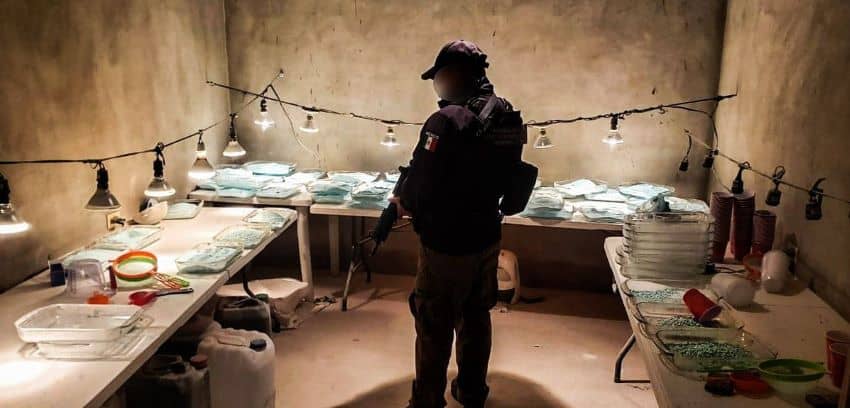
The production of fentanyl in Mexico
López Obrador has previously denied that illicit fentanyl is produced in Mexico, although he conceded over a year ago that pills of the powerful opiate are pressed here with ingredients shipped from Asia.
When Alfonsi asked whether United States authorities were wrong to say that Mexican cartels are mass producing fentanyl and that most fentanyl in the U.S. comes from Mexico, AMLO responded:
“Yes. Or rather, they don’t have all the information, because fentanyl is also produced in the United States. … Fentanyl is produced in the United States, in Canada, and in Mexico. And the chemical precursors come from Asia.”
López Obrador also reiterated his view that there is “very little” drug use in Mexico, attributing violence in the country to “drug trafficking” rather than the consumption of narcotics.
AMLO responds to U.S. politicians’ disparaging attitude toward Mexico
Asked to comment on United States House of Representative’s Speaker Mike Johnson’s recent assertion that he told President Biden that “Mexico will do what we say” with regard to immigration policy, López Obrador responded:
“No. No. The legislator is disrespectful. We are an independent, free, sovereign country. We are not a colony. We are not a protectorate of any foreign country. We have a very good relationship with the United States, but not one of subordination.”
AMLO accused certain U.S. politicians of using Mexico as a scapegoat for “the migration problem” and other bilateral issues.
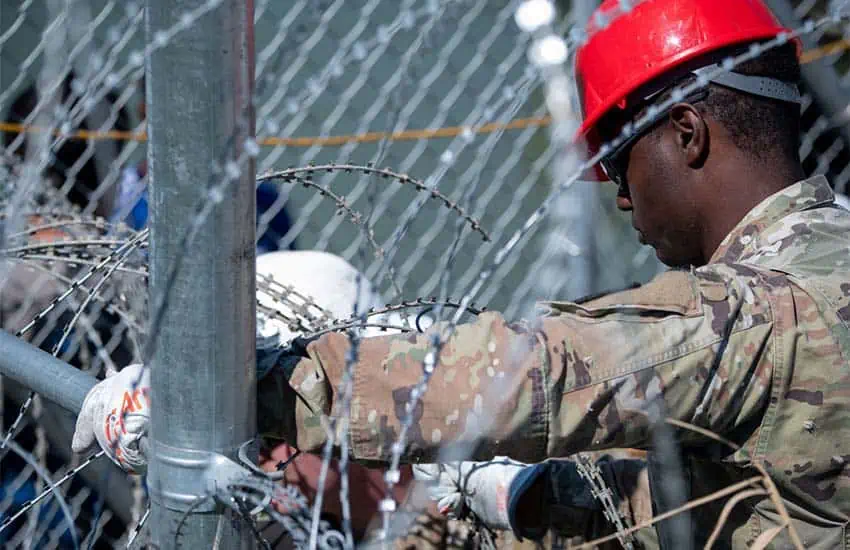
He specifically spoke about Texas Governor Greg Abbott, of whom he has been critical on numerous occasions.
“The governor of Texas, in order to make propaganda, because I think he wants to be a candidate for the vice presidency of the United States, goes to the Rio Grande and puts barbed wire and makes a spectacle. That is opportunism. With all due respect, that is cheap politicking. That is not serious,” López Obrador said.
Mexico News Daily
